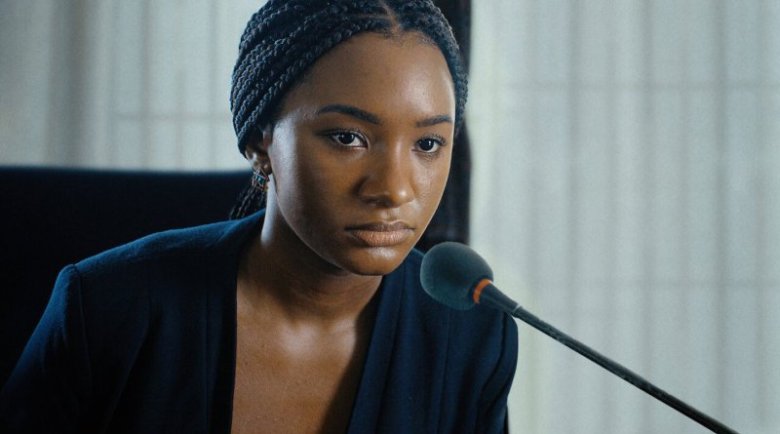“Citation” fails to present its message
While watching Citation, there was the initial optimism, and then everything went downhill. “Citation,” which came out on Netflix on Nov. 6, is a movie about Moremi Oluwa’s (Temi Otedola) fight to successfully win a case against renowned professor Lucien N’Dyare (Jimmy Jean-Louise) for attempted sexual assault. Although the movie revolves around a subject that deserves a spotlight, “Citation”’s presentation of the issue was lacking in several areas.
The movie is set in Lagos, Nigeria where Oluwa, a surprisingly young student, attends graduate school. She first meets Professor N’Dyare, who is described as “academic royalty,” in one of her classes. The movie is centered around the University Senate hearing that takes place in order to prove N’Dyare’s guilt, with breaks in between to depict flashbacks leading up to the attempted assault.
One thing that the movie did right was portray the importance of seeking justice for sexual assault allegations against individuals who hold authority. The movie shed light on an important subject, and it made sure to include how powerful people can undermine a victim’s credibility.
Although there is a potent message, the movie failed to keep my attention. When presenting such a serious topic, I think the viewer should be engaged with the movie the entire time. However, certain parts dragged on, and unimportant scenes took up a disproportionate amount of time. The most important part of the movie was packed into the last 30 minutes, and I feel like a focus on Oluwa’s fight to win the case should have had more than a mere half an hour.
Along with the disappointing plot, the relationship depicted between the main character and her boyfriend was also upsetting. The boyfriend did everything but support Oluwa, as he blamed her for not heeding his warnings about the professor and basically said the attempted assault was her fault. Oluwa stays away from him, but she ends up going back to him without receiving an apology or explanation.
There was also something about the casting that I could not get past: the lead actress has a distinctly fairer complex than the rest of the actors and actresses. It was upsetting to see that a seemingly progessive movie is still adhering to the archaic and offensive belief that lighter skin deserves the spotlight. It was hard to focus on the actual plot when the casting was blatantly made out to relay the message that fair skin made you the main character.
Overall, the plot, characters and casting took away from the main focus of the movie, which was depicting Oluwa’s fight for justice. The ending seemed rushed, even though it was the most interesting part of the film. While the movie did a great job representing assault survivors, other social issues were ignored and even perpetuated in the movie. In my opinion, “Citation” is not a movie I would recommend as it proved to be a waste of time.

Senior Christa Jophy is a reporter and this is her first year on staff. She loves to read, play with her dog,; watch Netflix and paint in her free time.



